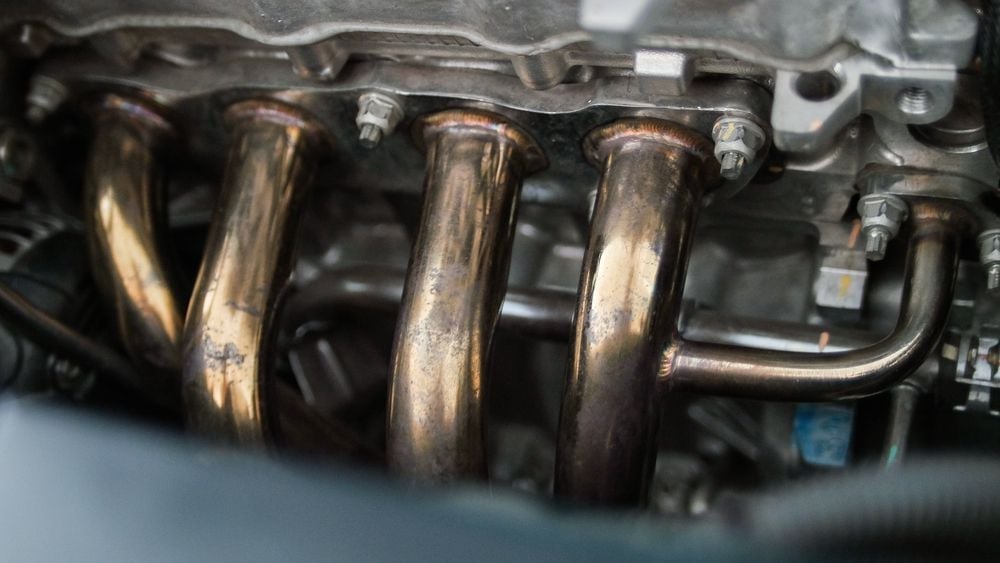
Headers are one of the exhaust components that auto enthusiasts love to modify in the name of performance and sound.
Headers, part of your vehicle's exhaust system, can make your car louder.
However, if your main objective is only to make your car louder, it will be more cost-effective to modify or replace your vehicle's muffler.
Below we will go over what you need to know regarding headers and sound.
 Exhaust headers on Toyota
Exhaust headers on Toyota
Do Headers Increase Engine Noise?
An exhaust header increases the amount of noise your engine will make. Compared to the stock system, a header is wider and thinner, allowing better sound travel and flow to exit the car, creating a more robust-sounding engine.
It's worth noting that they're not the go-to way to increase your sound. Instead, installing a cold air intake, deleting your muffler, and adding a resonator exhaust tip is better if the sound is your primary concern.
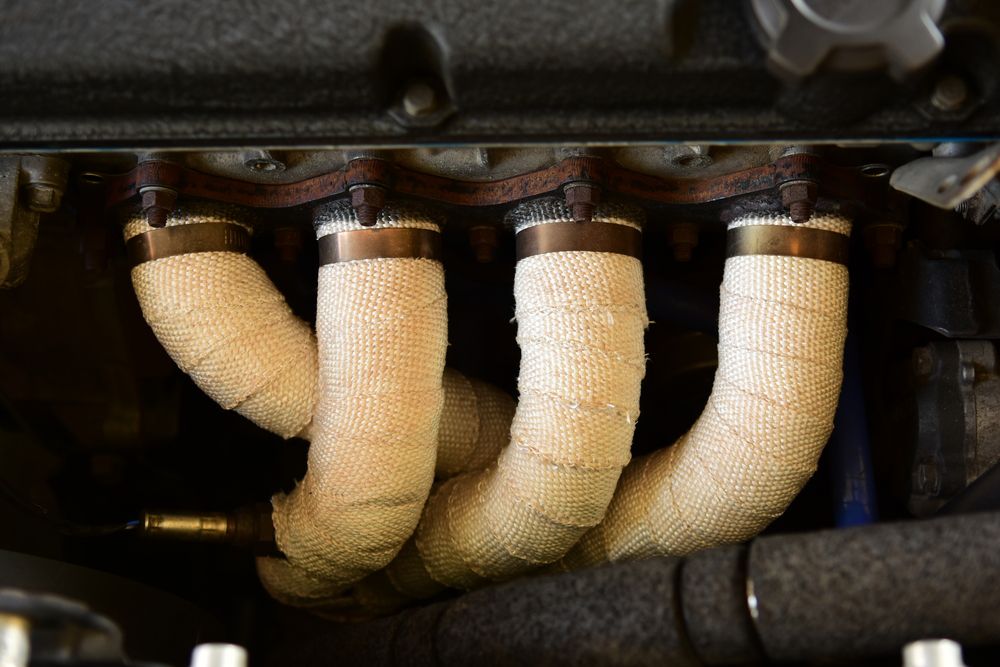 Heat wrapped exhaust headers
Heat wrapped exhaust headers
What Do Headers Do to a Car?
Headers serve the function of eliminating back pressure in the exhaust manifold.
Rather than having a single pipe routed from all the cylinders, each one has a separate exhaust connecting to the collector, then a larger pipe transports exhaust fumes on its way out of the muffler.
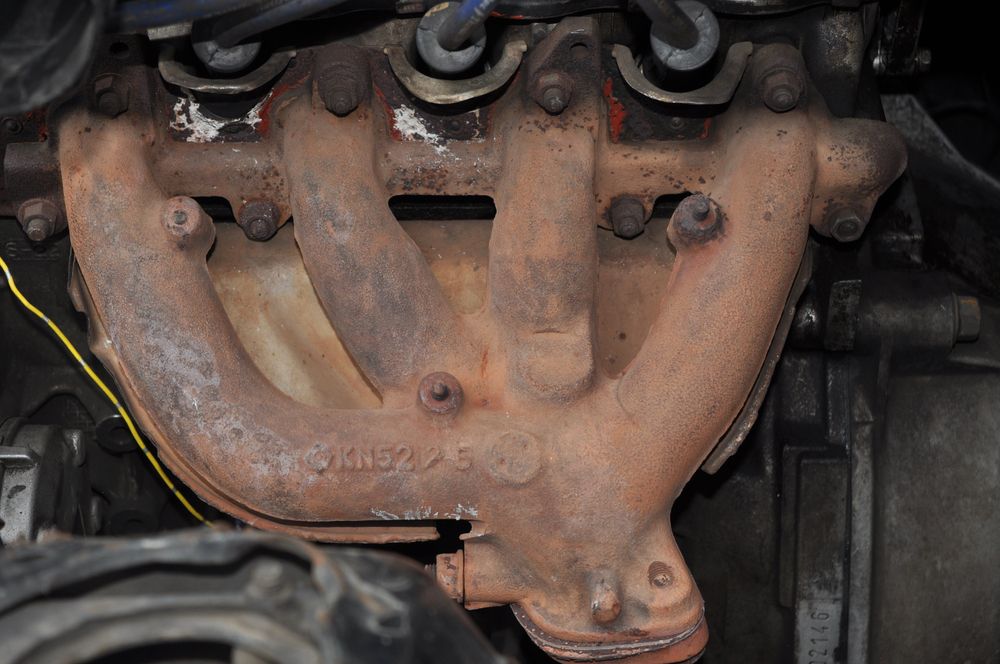 Old stock exhaust headers
Old stock exhaust headers
They can increase your horsepower slightly and reduce the amount of back pressure in the exhaust system.
However, be wary of noisy headers since they can alter the air to fuel ratio, causing various issues.
There are five different types of headers:
- shorty: isn't as noisy and is suitable for higher rpm vehicles.
- lakester: are used in hot rods for dry lake racing.
- tri-y: generate good horsepower and offer lesser torque than their competitors
- long-tube: best for low to mid-range torque settings.
- open: loudest and adds a fair bit of horsepower to a car.
How Much Horsepower Do Headers and a Tune Add?
The amount of horsepower headers and a tune add to an engine can vary greatly.
High performance engines stand to make significant gains while smaller economy motors will make far less.
Although 5 - 10 hp is the average, some headers can add up to 30 horsepower depending on the engine and the type of header you install.
The horsepower gain from a tune varies.
A typical dyno tune can add up to 15 horsepower on your vehicle but high performance engines could gain 30+ horsepower.
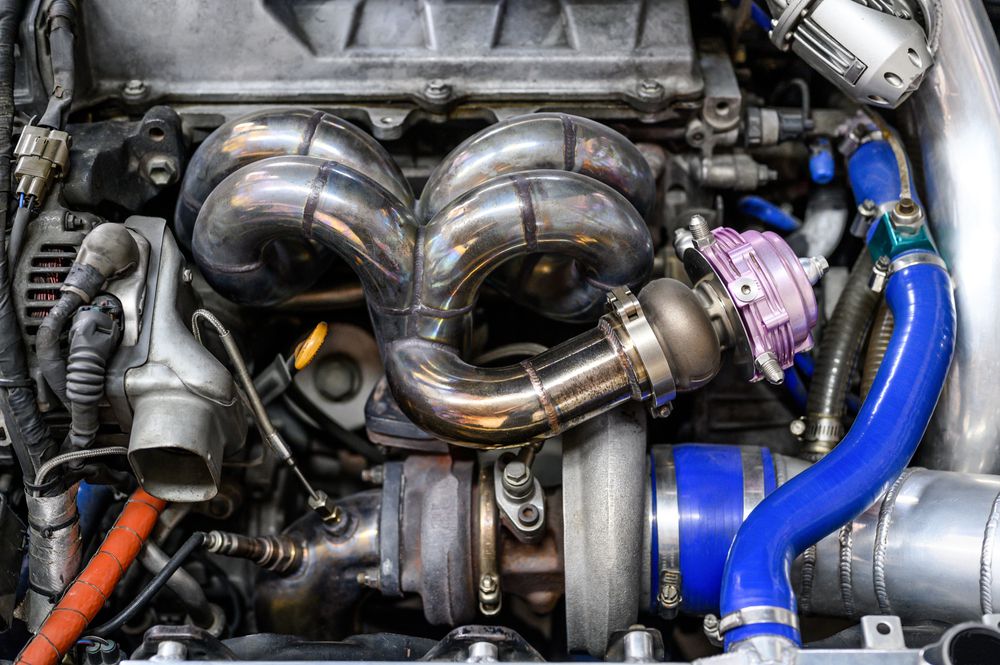 Four spark plugs in good condition
Four spark plugs in good condition
Do Headers Improve MPG?
Because headers reduce backpressure in the exhaust system, there's more oxygen in the combustion chamber to provide better efficiency in the engine.
They are also lighter, typically made from stainless steel, therefore making less work for your engine.
Both of these features make a small difference in the efficiency of your engine and, therefore, your miles per gallon.
All in all, you can save about 2-3 mpg on the highway with headers.
It might not seem like much, but the savings on gas will add up in the long term.
 Custom headers in a high performance engine
Custom headers in a high performance engine
Do Headers Make Your Car Faster?
Headers increase your horsepower and, therefore, your potential speed, but they're not the best way to do so.
The long tube and open headers offer the most horsepower but are louder.
A good make of long tube headers can add up to 30 horsepower depending on your engine.
This is due to the increased intake, reduced backpressure, and better power efficiency.
What Makes Your Car Louder?
Resonator Exhaust Tips
Resonator exhaust tips offer more efficient fuel use and better performance overall, but you should be careful which one you choose. Some are better than others.
When used with a stock muffler, they can further mute the noise, but an upgraded exhaust system (like one with headers) can modify and amplify the noise from your engine, creating a throaty or raspy tip.
The larger the tip, the gruffer your engine will sound, and the smaller the tip, the raspier.
After a muffler delete, a resonator exhaust tip is best when added to a custom pipe.
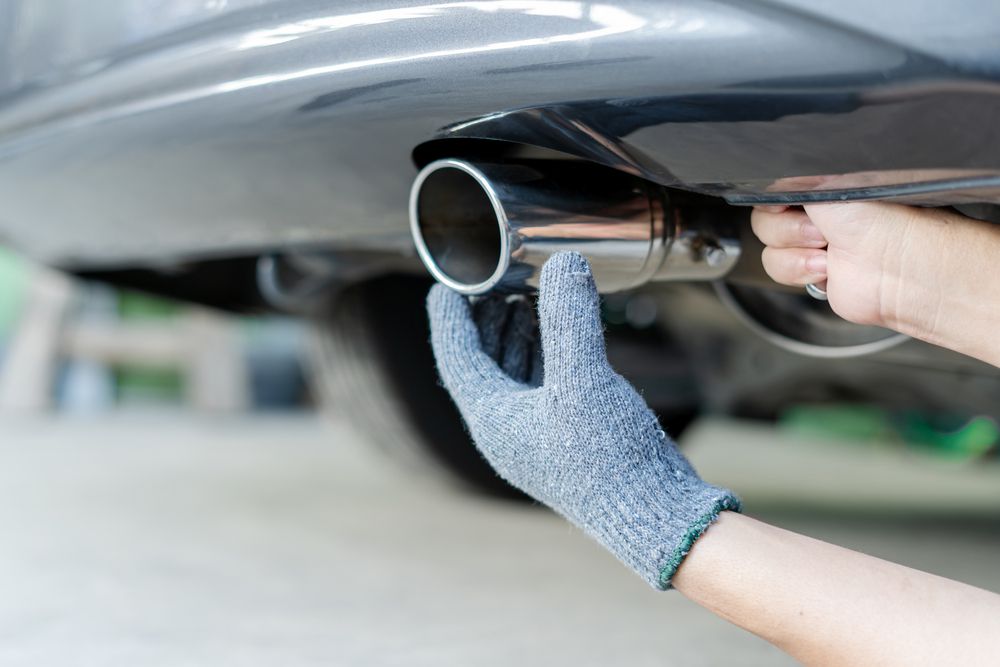 Exhaust tip
Exhaust tip
Performance Muffler
Instead of balancing power with noise reduction, performance rufflers offer more efficient airflow and exhaust management at the expense (if you want to look at it that way) of more noise.
A performance muffler is usually installed with a cat-back system upgrade, meaning changing everything from the catalytic converter to the back of the car.
A cat-back upgrade is the only way you'll see substantial power gains, but adding a performance muffler and open header is one way to boost the noise of your machine.
Delete the Muffler
The muffler mutes noise from the exhaust system, so uninstalling it is a straightforward way to increase the sound of your car.
Be aware before you begin that deleting your muffler is illegal in some states, so be sure to comply with your state's laws before doing any mods to your car.
You'll need to have the car lifted to access and remove the muffler, but once you do, be sure to fit a pipe on there with the same diameter as the removed muffler inlet and outlet; otherwise, you'll burn up the fuel tank and cause a whole bunch of issues.
After a muffler delete, a loud exhaust tip will give you that deep throaty sound.
Deleting your muffler can reduce backpressure, improve performance, and increase sound.
You can do this at a muffler repair shop for anywhere from $100 to $ 300.
Drill Your Exhaust (Not Recommended)
Drilling your exhaust is a way to make your car very loud since the drilled holes allow sound waves to travel more easily outside the vehicle before being affected by the muffler.
You should exercise great caution since holes drilled in the wrong place can wreck your exhaust system or engine and damage your car, especially if you drill holes before the gases have been made nontoxic (before the catalytic converter).
A 3/8 drill bit will do the trick but be sure to take great care messing with the physical structure of your car.
Unfortunately, any mistake will not be covered by your insurance and may require much work to replace.
You don't want to be slapped with your mechanic's $500 repair bill because you drilled a hole wrong.
Cold Air Intake
Installing a cold air intake allows your engine to run at cooler temperatures and have a much longer life span.
It can also benefit other components that deal with heat, including the radiator.
Cold intake allows for the entry of cool air into the chamber, allowing for a quicker throttle response than a stock intake.
This faster engine response time will increase the engine's horsepower and provide better gas mileage.
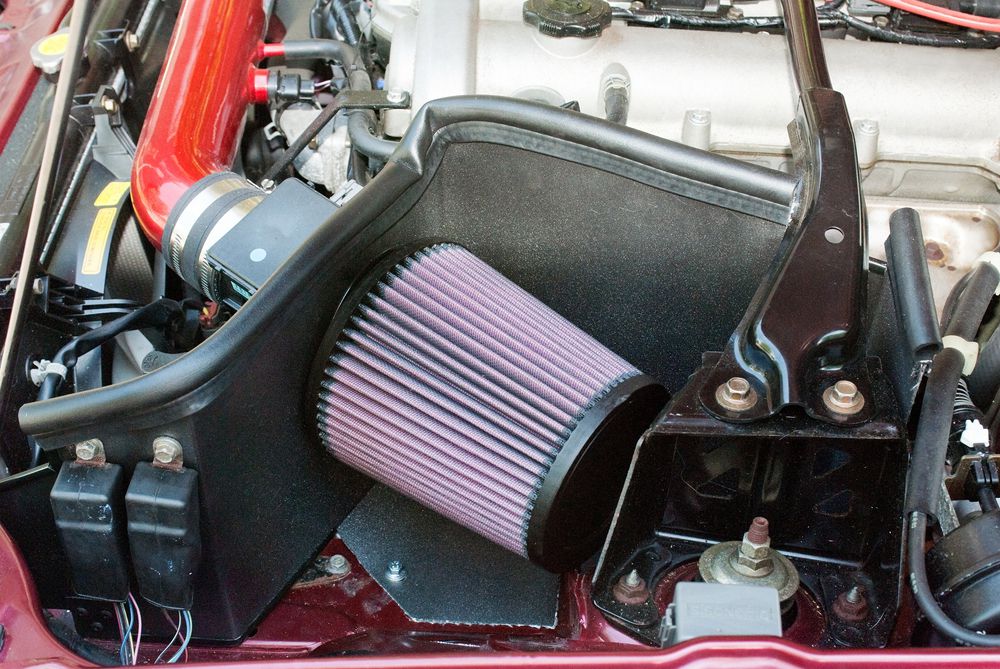 Custom cold air intake
Custom cold air intake
An air filter with a cold air intake is more easily maintained and can save you money on repairs compared to a stock intake.
However, some concerns with cold air intake include the risk of hydro-locking your engine.
Hydro-locking can occur if your engine sucks in moisture instead of air.
The delicate components can be compromised, ruining the pistons and allowing the connecting rods to bend.
Conclusion
You can upgrade a stock car in many ways to allow for better sound distribution, reduced backpressure, and more efficient airflow.
These products vary greatly, from headers to exhaust tips, and thankfully, many of them do a great job at increasing your car's horsepower and mileage.
Headers offer more efficient handling of exhaust fumes, allowing the engine to work more efficiently with oxygen and increasing horsepower. Also, contrary to popular belief, most headers don't increase engine noise much compared to other mods out there.
An open header is the best option if you're only going for noise.
It allows for the widest distribution of air (and thus sound) to create a significant volume of noise from your tailpipe.
Resonator exhaust tips add a lot of noise to a performance car, but they are best combined with a complete cat-back modification overhaul.
When combined with stock mufflers, some resonator exhaust tips can further mute the noise from the muffler.
If you want the muffler gone entirely, you can do a muffler delete for under $300 but be aware that doing a delete is illegal in some places.
Consider your living environment as well.
For example, if you live in a city, then the absence of a muffler might prove to be a nuisance to those around you.
Whatever your preferred method, there's always a way to improve your exhaust system and get better mileage and louder sound by modding your car.
FAQ
What's the Function of the Exhaust Heater?
An exhaust heater recycles heat energy from the exhaust gases to be used for powering process heating or cooling.
It can also generate more electricity.
It captures the lost energy from the exhaust system in the form of 'free energy' and improves the efficiency of a vehicle.